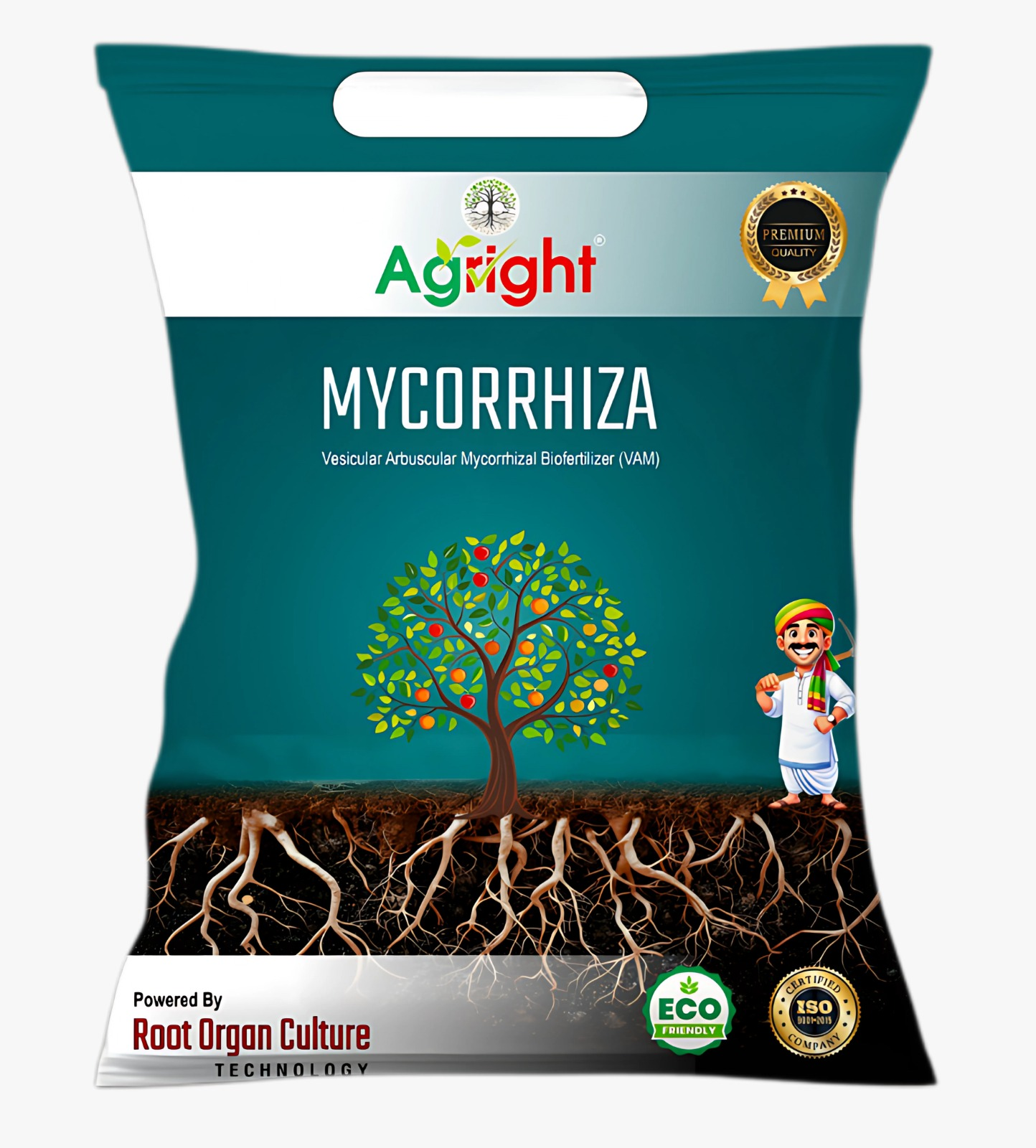
- Home
- Give Your Crops the Foundation They Need to Thrive!

Aditi Bijalwan
Co-founder at Agrilogy Bioscience Private Limited
From drought resistance to enhanced nutrient uptake, find out how Agrilogy Bioscience Private Limited’s mycorrhizal spores can set your plants up for success.
When we think of healthy crops, we often picture what we can see—lush green leaves, strong stems, and bountiful harvests. But what if the real key to plant health lies underground?
Beneath the surface, an ancient and powerful alliance is at work. This partnership between plants and mycorrhizal fungi is transforming how we grow, nourish, and sustain our crops.
In this post, we’ll explore how different species of mycorrhizal fungi are becoming the unsung heroes of modern farming—and why now is the time to pay attention to what’s happening beneath our feet.
At Agrilogy Bioscience Private Limited, we believe in the power of nature to transform the way we grow crops. Mycorrhizal fungi, through their symbiotic relationship with plant roots, offer unparalleled benefits to your soil and plants. Whether you’re working in nutrient-poor, acidic, or drought-prone soils, our diverse range of mycorrhizal spores helps improve soil structure, enhance nutrient uptake, and increase plant resilience. Dive into the world of mycorrhizal fungi with Agrilogy Bioscience Private Limited’s premium spore offerings designed to help your crops thrive.
The Hidden Partners Beneath Every Strong Crop
The first time I witnessed the power of mycorrhizal fungi, it was a side-by-side field trial. Both fields had the same crop, but only one was treated with Rhizophagus intraradices, a widely studied arbuscular mycorrhizal species.
The difference was staggering.
The treated plants showed better growth, richer leaf color, and—most notably—resilience in the face of reduced irrigation. How? Because R. intraradices had developed an intricate network of hyphae (fine fungal threads) that extended the plant’s root system, allowing it to draw nutrients and water from soil zones far beyond the reach of natural roots.
And it wasn’t just that one species making a difference:
- Funneliformis mosseae showed remarkable efficiency in acidic, nutrient-depleted soils. Its ability to mobilize phosphorus helped revive crop performance in previously underproductive land.
- Claroideoglomus etunicatum played a vital role in areas hit by drought, strengthening root systems and supporting water retention.
These invisible organisms are not just supporting plant growth—they’re reshaping what’s possible in agriculture.
Rebuilding Soils with Biology, Not Just Chemistry
In many regions around the world, soils have been exhausted by years of monoculture, over-fertilization, and erosion. The usual response? Chemical inputs. But what if we could rebuild soil naturally?
That’s where Rhizophagus fasciculatum comes in—a fast-colonizing mycorrhizal fungus ideal for disturbed or degraded land.
In one example, a field worn out from continuous cropping showed dramatic recovery after inoculation with R. fasciculatum. The results were impressive:
- Soil porosity improved, enhancing oxygen exchange and root penetration
- Fertilizer inputs were reduced by up to 30%
- Plants developed deeper and healthier root systems
The fungus didn’t just feed the crop—it restructured the soil itself.
Mycorrhizal fungi serve as soil engineers. They stabilize aggregates, improve water retention, and help cycle nutrients organically. In arid regions or post-clearance restoration efforts, their value is immeasurable.
Tailored Fungal Solutions for Diverse Challenges
What makes mycorrhizal fungi so powerful is their diversity. Different species thrive in different conditions—and choosing the right one can transform your soil management strategy.
At Agrilogy Bioscience Private Limited, we’re proud to offer a range of high-quality, highly effective mycorrhizal spore species, each carefully selected to meet your specific agricultural needs. Here’s a snapshot of a few notable species and their unique strengths:
Meet Agrilogy Bioscience Private Limited’s Top Mycorrhizal Species
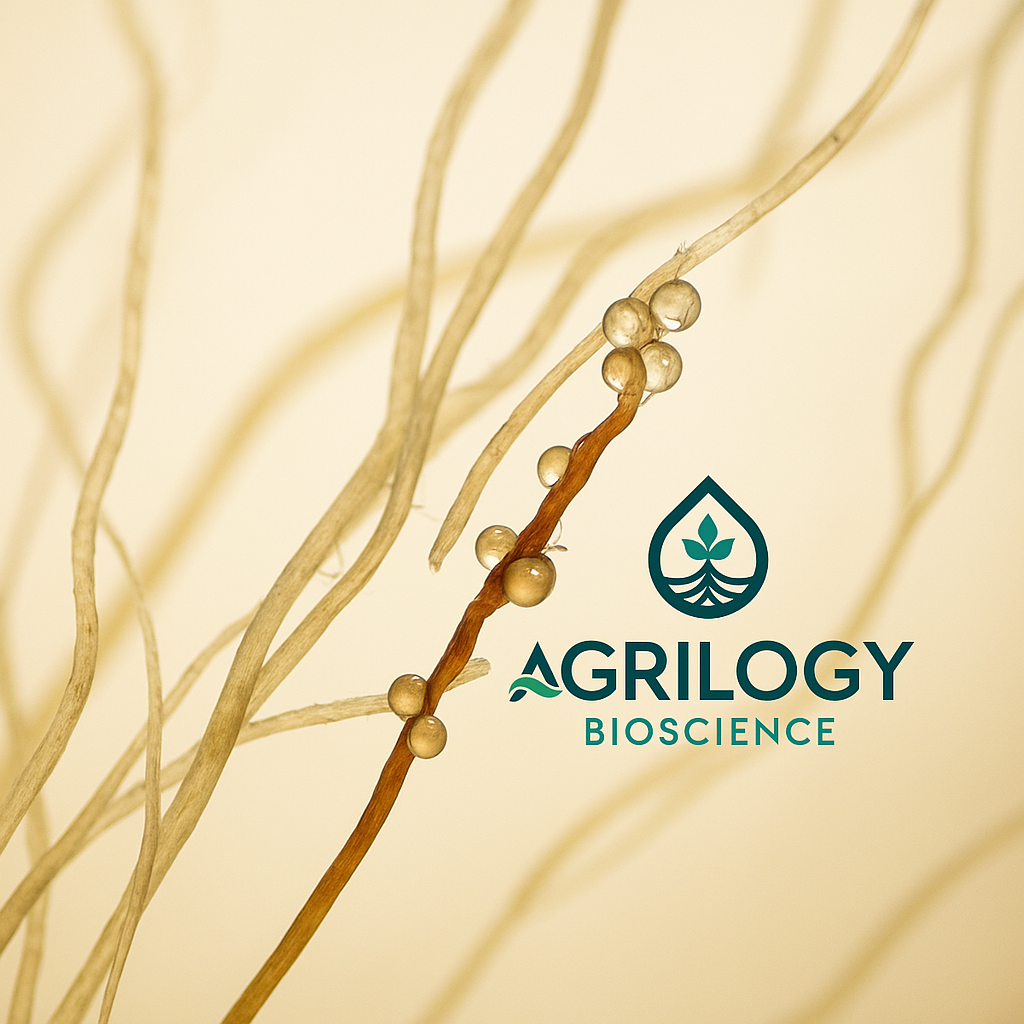
Every farm has unique needs, and we believe in offering the right solution for your soil, climate, and crops. Whether you're farming in nutrient-depleted soils, working to restore degraded land, or looking to boost plant growth in drought-prone areas, we have a species of mycorrhizal fungi that can meet those needs. Let’s explore the diverse and valuable species we offer:
1) Rhizophagus intraradices (Glomus intraradices)
- Spore Size: 40–140 μm
- Colour: Pale yellow to light brown
- Best for: Agricultural soils with varying pH, crops requiring high phosphorus uptake, and drought-prone conditions.
- Special Characteristics: Known for its efficiency in improving phosphorus uptake, R. intraradices also enhances plant drought tolerance and helps improve soil structure. Its rapid colonization and extensive hyphal networks contribute to plant growth even in challenging environments, making it an excellent choice for a wide variety of crops.
- Why Choose This Species? Perfect for crops in agricultural soils where enhancing phosphorus uptake and drought resilience is key.
2) Funneliformis mosseae (Glomus mosseae)
- Spore Size: 120–200 μm
- Colour: Yellow-brown to dark brown
- Best for: Acidic soils, nutrient-depleted lands, and crops that need a boost in phosphorus uptake.
- Special Characteristics: F. mosseae is extremely effective in acidic soils, where other forms of mycorrhizal fungi may struggle. Its ability to absorb phosphorus efficiently helps restore nutrients in soils that have been depleted over time. It also supports plant growth in environments where nutrient availability is limited.
- Why Choose This Species? Ideal for restoring soils that have become nutrient-depleted, especially in acidic conditions.
3) Rhizophagus fasciculatum (Glomus fasciculatum)
- Spore Size: 60–110 μm
- Colour: Pale yellow to yellow-brown
- Best for: Fast colonization in disturbed soils, agricultural soils, and arid regions.
- Special Characteristics: R. fasciculatum is known for its rapid colonization capabilities, making it a great choice for disturbed or degraded soils. It helps speed up the recovery process in soils that have been damaged by overuse or environmental stress.
- Why Choose This Species? Perfect for quick soil restoration in disturbed environments, arid areas, or recently cleared lands.
4) Rhizophagus proliferum (Glomus proliferum)
- Spore Size: 70–110 μm
- Colour: Pale yellow (hyaline)
- Best for: Forest soils, disturbed agricultural lands, and regions requiring soil restoration.
- Special Characteristics: R. proliferum is a rapid colonizer that establishes quickly in disturbed soils, making it essential for soil restoration projects. It is also beneficial for enhancing root biomass, especially under saline conditions.
- Why Choose This Species? Excellent for rapidly restoring degraded lands or in situations where fast plant establishment is needed.
5) Rhizophagus clarus (Glomus clarus)
- Spore Size: 100–120 μm
- Colour: White to pale yellow
- Best for: Agricultural systems with sandy loam soils, nutrient cycling, and early-stage plant growth.
- Special Characteristics: R. clarus is known for its ability to form resilient spores that thrive in low-nutrient soils. It helps improve soil structure, supports nutrient cycling, and enhances early plant growth, making it a go-to choice for sandy soils and disturbed ecosystems.
- Why Choose This Species? Perfect for improving soil health and supporting early plant growth in sandy and nutrient-poor soils.
6) Claroideoglomus etunicatum (Glomus etunicatum)
- Spore Size: 80–150 μm
- Colour: Pale yellow to red-brown
- Best for: Agricultural fields, disturbed ecosystems, and areas prone to drought.
- Special Characteristics: C. etunicatum is highly resilient, tolerating both environmental stresses and pathogens. It improves root growth, boosts plant resilience, and is particularly effective in areas with water scarcity or low soil fertility.
- Why Choose This Species? Ideal for growing crops in drought-prone or stressed environments where rapid root growth is necessary.
Why Choose Agrilogy Bioscience Private Limited’s Mycorrhizal Spores?
With climate change, water scarcity, and soil degradation on the rise, the need for biological resilience in agriculture has never been greater.
Mycorrhizal fungi that Agrilogy Bioscience Private Limited offer a natural, scalable solution:
- Reduce dependency on chemical fertilizers
- Improve soil carbon and organic matter content
- Enhance water-use efficiency
- Strengthen plants against stress and disease
These aren’t futuristic concepts—they're happening now, in fields around the world. And while the science continues to evolve, the practical applications are already transforming agricultural landscapes.
At Agrilogy Bioscience Private Limited, we don’t just provide any mycorrhizal spores—we offer premium, high-quality fungi that are optimized for different environmental conditions. Here’s why Agrilogy Bioscience Private Limited’s spores stand out:
- High-Quality Spores: Our spores are rigorously tested to ensure they are effective and reliable, helping you get the best results for your crops.
- Diverse Selection: From nutrient-rich soils to drought-prone regions, Agrilogy Bioscience Private Limited offers a diverse range of mycorrhizal species and blends to suit your unique agricultural needs.
- Compatibility: Our spores are compatible with a wide variety of crops, ensuring that you can use them in both conventional and organic farming systems.
- Sustainable Agriculture: By promoting healthier plants and better soil conditions, Agrilogy Bioscience Private Limited’s spores contribute to sustainable farming practices that reduce the need for chemical fertilizers and pesticides.
It’s Time to Look Below the Surface
As we transition toward more sustainable and regenerative models of agriculture, mycorrhizal fungi are emerging as a foundational tool in the toolkit.
They don’t just make plants grow—they help restore balance to ecosystems, increase crop resilience, and make farming more adaptive in the face of uncertainty.
So next time you look at a thriving plant, remember: its greatest allies may be the ones you can’t see.
Let’s stop treating soil like dirt.
Let’s treat it like the living, breathing ecosystem it truly is.
Get Started Today!
Ready to take the next step in soil health and crop productivity. Browse Our Selection and order your mycorrhizal spores today. Join the many farmers already reaping the benefits of healthier, more resilient crops with Agrilogy Bioscience Private Limited.
Comments (0)
No comments yet. Be the first to comment!
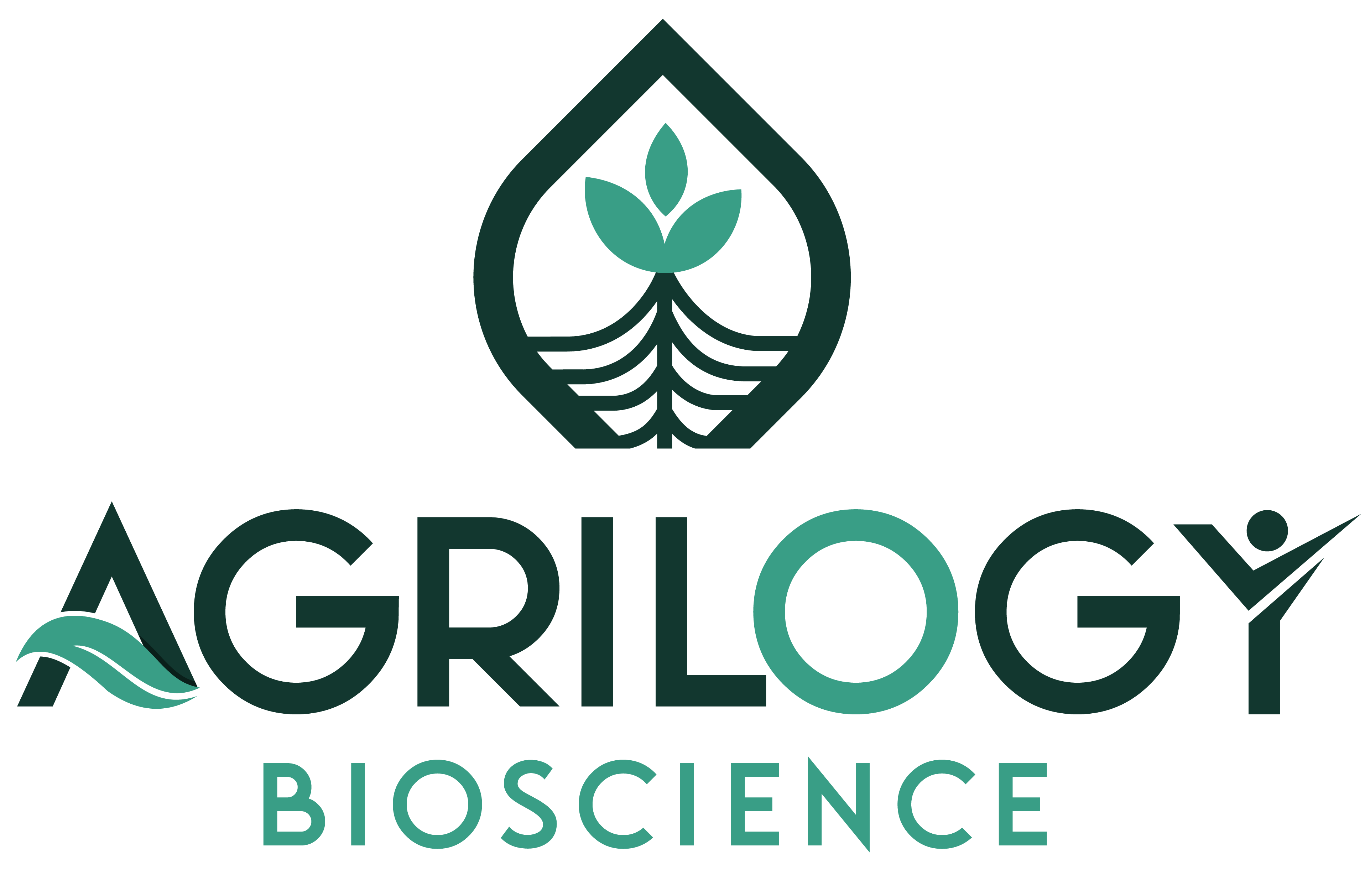
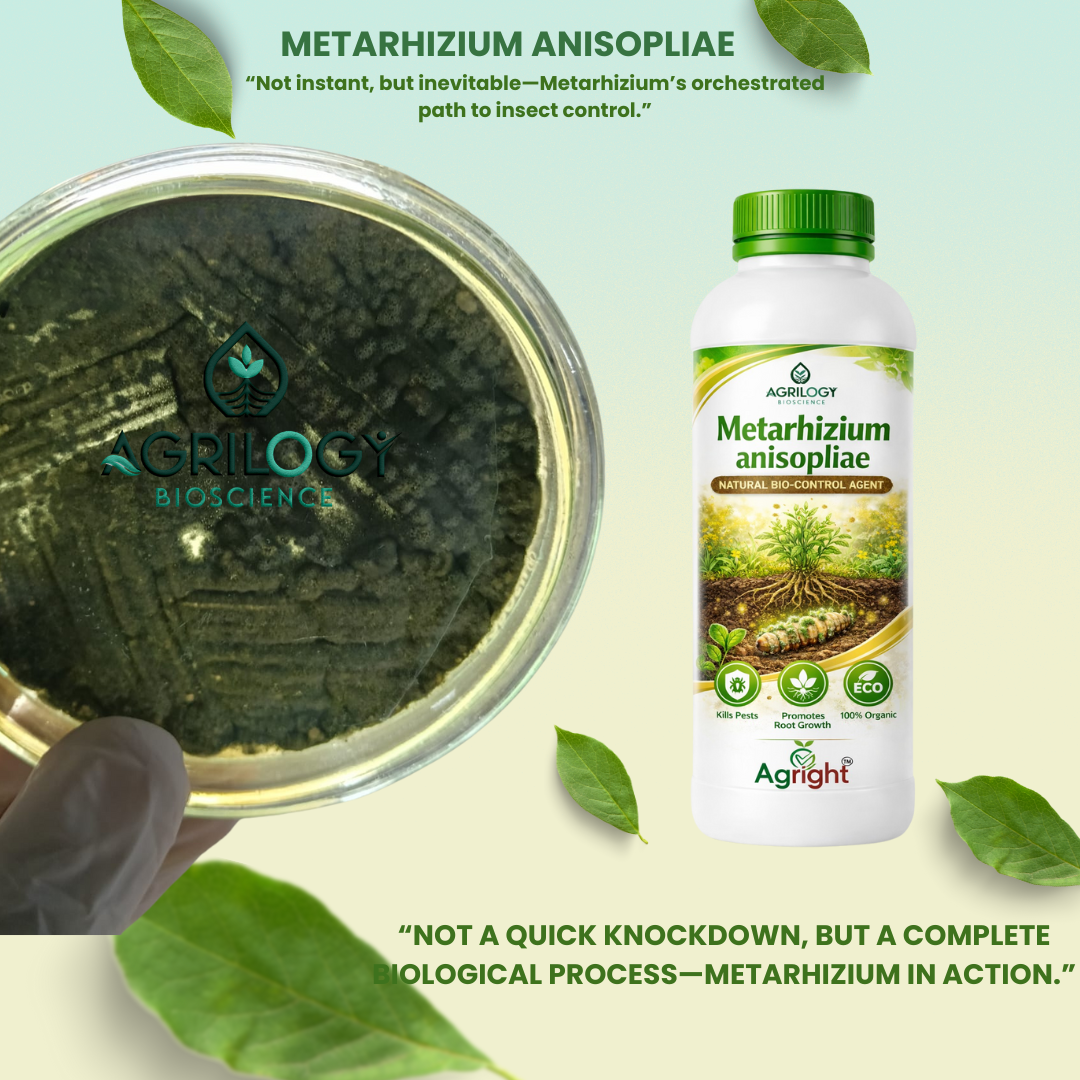
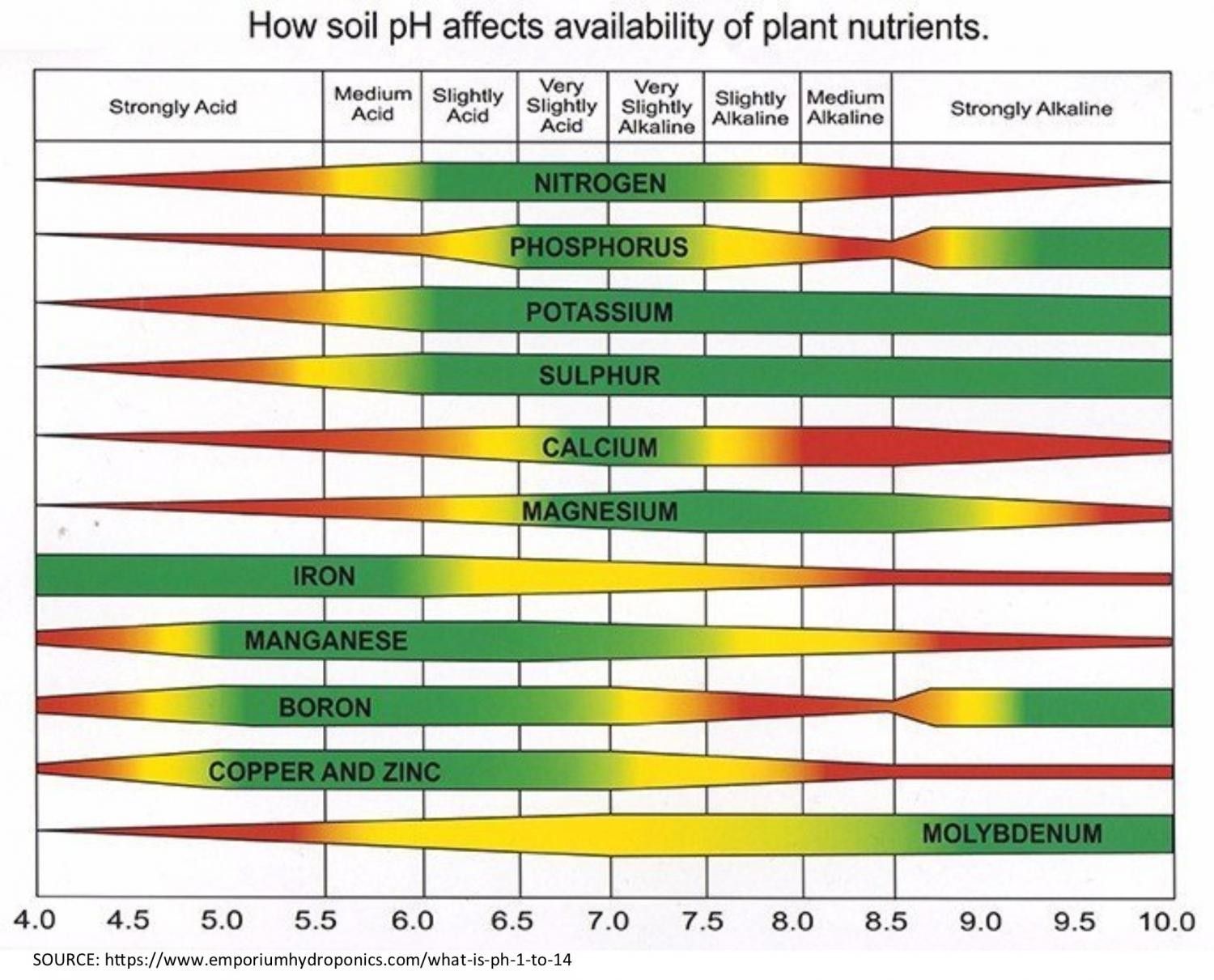
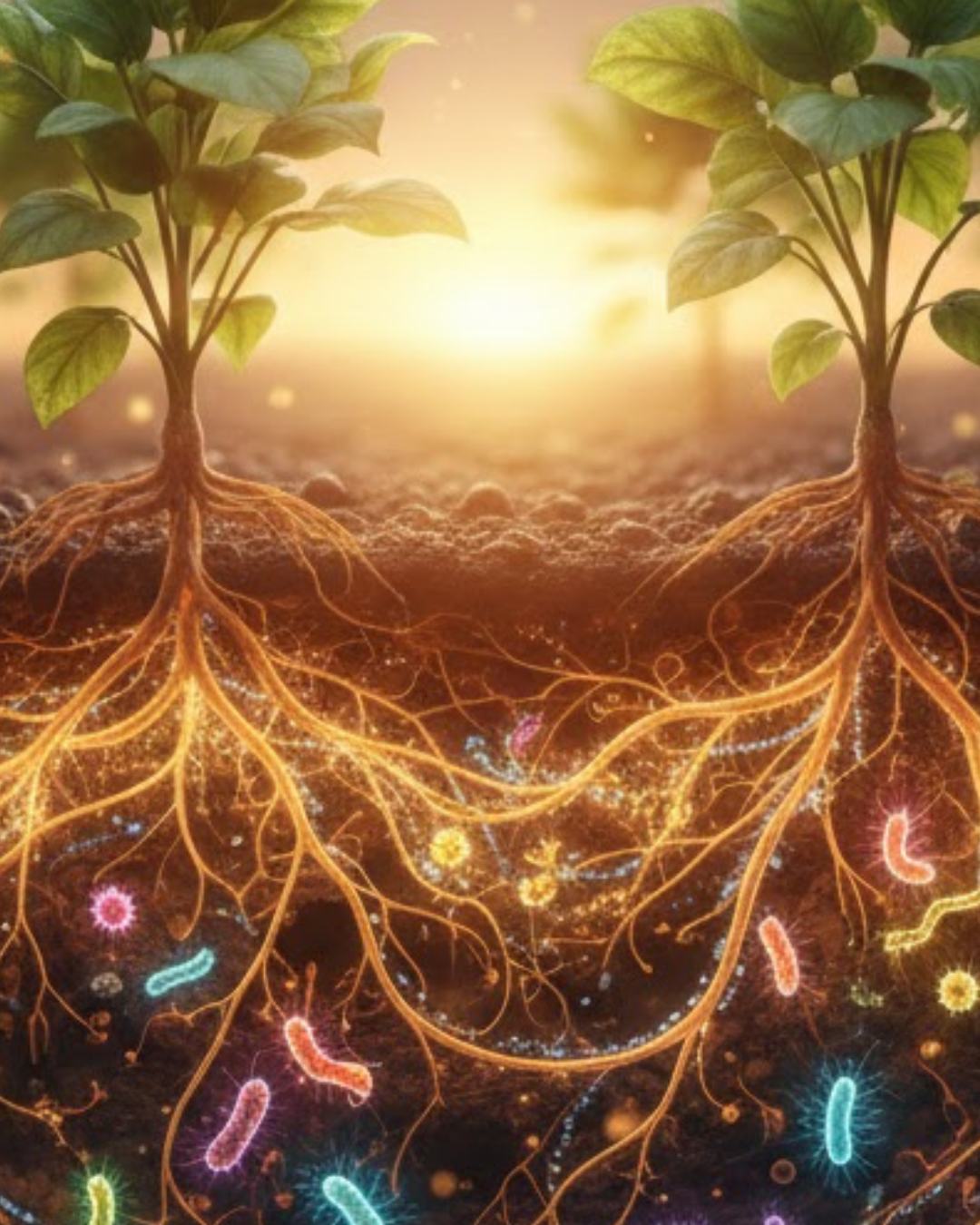
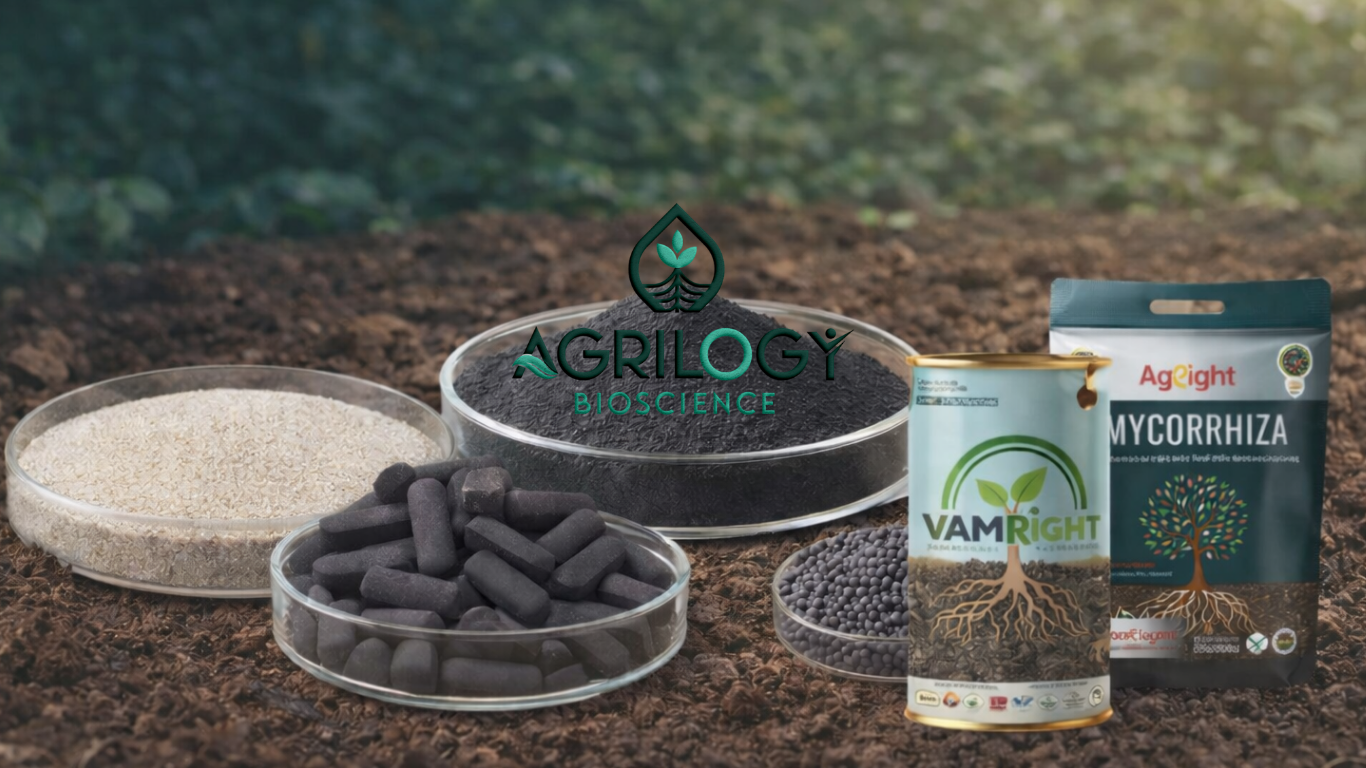
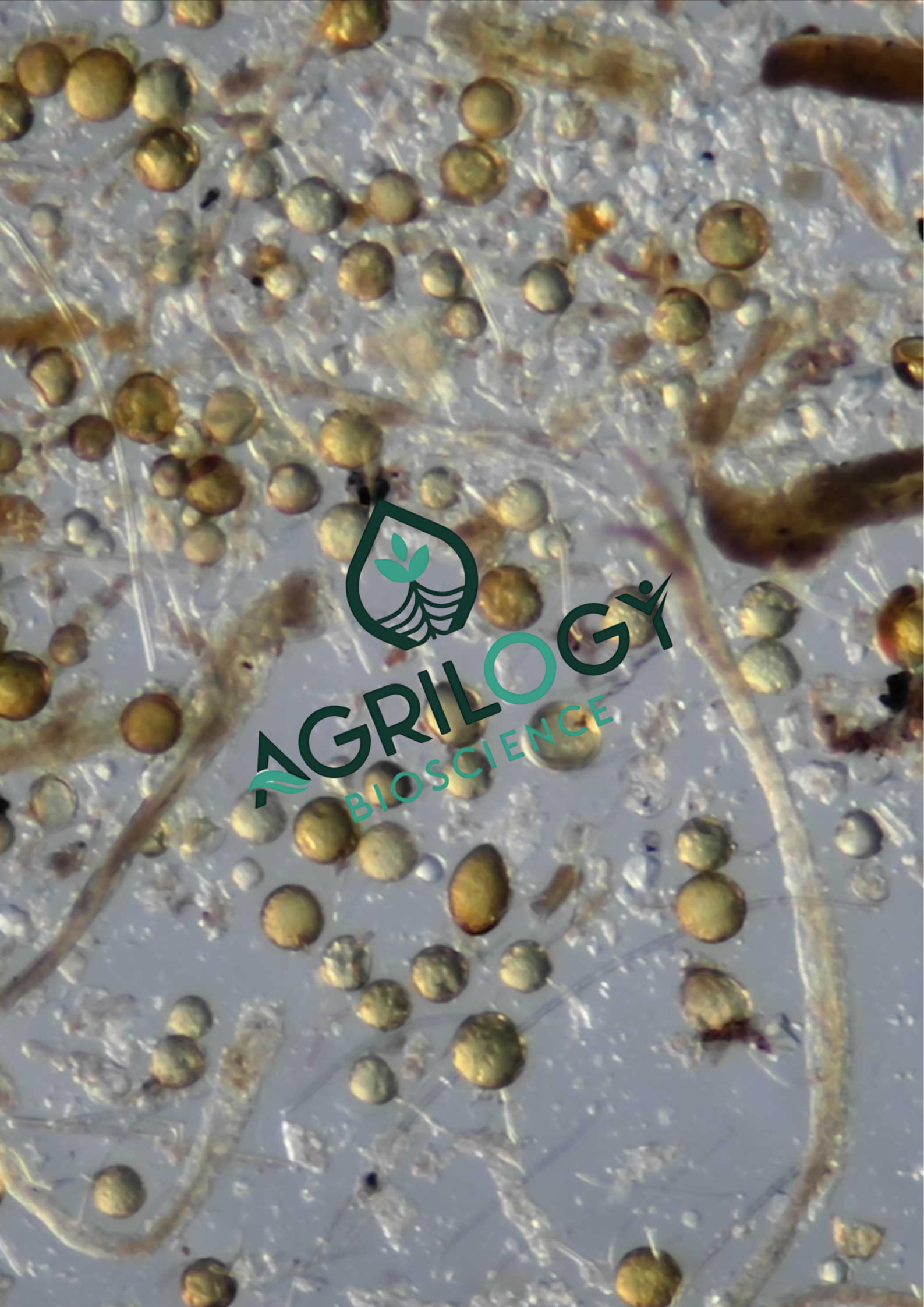
Leave a Comment